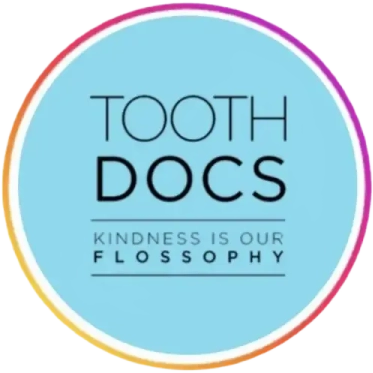Why should I take my child to the dentist?
Your child should visit the dentist regularly because tooth decay and gum disease are the most prevalent childhood diseases. Early detection of cavities and other oral problems can help avoid pain, suffering, and expensive treatment. In addition, your child’s dentist can monitor his or her oral health to ensure there are no issues or concerns.
The ADA recommends that children visit the dental office within six months of their first tooth erupting or by the age of one. These early visits allow your dentist to monitor the development of your child's teeth, jaws, and bite alignment. It also gives your dentist the opportunity to discuss proper oral hygiene techniques, diet, and nutrition with your child.
Taking your child to the dentist at a young age also gets him or her used to visiting the dentist on a regular basis. This can make future visits easier and less frightening for your child.
Finally, regular visits to the dentist can help prevent common childhood problems such as baby bottle tooth decay, teething irritations, and prolonged thumb-sucking.
At what age should my child first see a dentist?
The American Dental Association recommends taking your child to the dentist by age 1 or when he or she starts to get teeth. However, if your child has certain risk factors, such as frequent ear infections, pacifier use after age three, or a family history of decay, you may want to start earlier.
How often should I schedule appointments for my child?
Children should see their dentist every six months for regular checkups and cleanings.
When should my child first visit the dentist?
The American Academy of Pediatric Dentistry recommends that children see a dentist by their first birthday, or within six months of their first tooth coming in. Early visits help your child become comfortable with visiting the dentist and can help detect problems early.
At the first appointment, your dentist will check for cavities and other oral issues, as well as discuss proper oral hygiene techniques for your child. Your child’s dentist will also check for developmental abnormalities, such as problems with jaw growth and teeth alignment. Your dentist may also recommend fluoride treatments to strengthen and protect their teeth from decay.
The earlier that a child begins seeing a dentist regularly, the healthier their mouth will be throughout their life. Regular checkups and cleanings can prevent tooth decay and help your child avoid serious oral health problems in the future.
Schedule an appointment today! Call our office at .
Source: How can my child prevent tooth decay?
The best way to prevent cavities and other oral health problems is by brushing and flossing your teeth at least twice a day, every day. Eating a healthy diet and avoiding sugary foods and drinks are also essential. Regular visits to the dentist for checkups and cleanings are also important for your child’s dental health. At these visits, we can monitor your child’s teeth for any signs of decay or other issues and provide treatment as needed. We can also recommend fluoride treatments or sealants to protect their teeth from cavities.
Your child should visit the dentist every six months for regular cleanings and exams. These appointments allow us to remove plaque buildup and monitor their oral health. If your child has an increased risk of developing cavities, we may recommend more frequent visits.
In addition to regular brushing and flossing, we recommend that children use a mouthwash that contains fluoride. Fluoride helps to strengthen tooth enamel and prevent tooth decay. We also recommend that parents limit their child’s consumption of sugary drinks and snacks.
Finally, it is important to teach your child good oral hygiene habits from an early age. This will help them maintain a healthy smile throughout their life.
If your child is due for a checkup, please contact our office to schedule an appointment. We would be happy to answer any of your questions and help your child maintain healthy teeth and gums.
How can my child's teeth be straightened?
At our office, we offer two types of braces for children: traditional metal braces and Invisalign® clear aligners. Both options provide the same beautiful results, but each has its own advantages that may make one more appropriate for some children than the other. Traditional braces are made of metal brackets and wires and are bonded to the front of each tooth. With this option, your child will need to visit our office every six to eight weeks to have their braces adjusted. The length of treatment time varies based on the severity of the misalignment, but it typically takes between one and three years to complete. While wearing braces, your child may experience discomfort or soreness for a few days after each adjustment, but this should subside on its own. However, if they experience any severe pain that lasts more than a week, then contact our office right away.
Invisalign® clear aligners use a series of clear plastic trays to gradually straighten the teeth. Each tray is worn for two weeks before being switched out for the next in the series. Patients wear the trays for 22 hours a day throughout the entire course of treatment, removing them only to eat, brush their teeth, or drink something besides water. This option offers several benefits over traditional braces, including the fact that no food restrictions are necessary since the trays can be removed before eating. Additionally, the trays are clear, so they do not stand out as much as traditional braces. This makes them more cosmetically appealing for older teens and adults.
Endodontics In New York, NY
Pediatric Dentistry In Roslyn, NY
Sedation Dentistry In Roslyn, NY
Crown Lengthening Roslyn, Ny
All-On-4 Implants in Roslyn, NY
Scaling and Root Planing
Gum Disease Treatments
Crown Lengthening
Scaling and Root Planing Roslyn, NY
Roslyn Dental Services
New York Dental Services
Periodontal Services Roslyn NY
Gum Disease Treatments Roslyn, NY
Endodontics In Roslyn, NY
Same Day Dentistry In Roslyn, NY
Dentures And Partial Dentures In Roslyn, NY
Dental Crowns And Bridges In Roslyn, NY
Lumineers In Roslyn, NY
Dental Veneers in Roslyn, NY
Dental Checkup in Roslyn, NY
Root Canal Treatment in Roslyn, NY
Bone Grafting in Roslyn, NY
Clear Aligners And Invisalign In Roslyn, NY
Teeth Whitening in Roslyn, NY
Dental Implants in Roslyn, NY
Emergency Dentistry in Roslyn NY
Full Mouth Reconstruction in Roslyn, NY
Smile Makeover In Roslyn, NY
Dentures & Partial Dentures
All on 4 Implants
Dental Implants
Emergency Dentistry
Same Day Dentistry
Clear Aligners and Invisalign
Pediatric Dentistry
Smile Makeover
All-On-4 Implants
Dentures and Partial Dentures
Dental Crowns and Bridges
Lumineers
Sedation Dentistry
Full Mouth Reconstruction
Dental Veneers
Dental Checkup
Teeth Whitening
Root Canal Treatment
Bone Grafting
Periodontal Services
Locations
630 5th Avenue Suite 1815, New York, New York 10111
Phone: (212) 969-9490
Email: info.nyc@toothdocsdental.com
- MON - FRI9:00 am - 5:00 pm
- SAT9:00 am - 4:00 pm
- SUNClosed
1044 Northern Blvd., Suite 106, Roslyn, New York 11576
Phone: (516) 625-0088
Email: info.roslyn@toothdocsdental.com
- MON9:00 am - 6:00 pm
- TUE9:00 am - 5:00 pm
- WED9:00 am - 6:00 pm
- THU - FRI9:00 am - 5:00 pm
- SAT - SUNClosed








